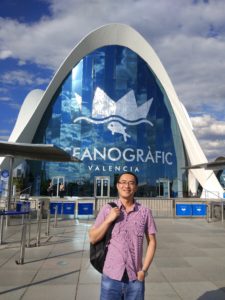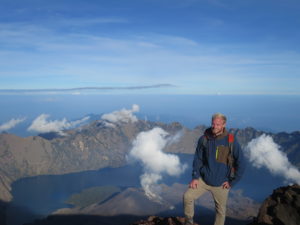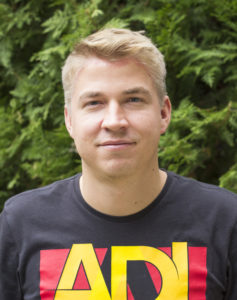 Tell something about yourself?
Tell something about yourself?
My name is Yongwei Li and I am from China. I got my Bachelor and Master Degree in Computer Science and Technology from Liaoning Normal University, China. My master study mainly focused on the field of image analysis, CBIR (content-based image retrieval) and signal processing. During my master, I worked in a lab which is funded by the National Natural Science Foundation of China, from where I started my research career and published six journal papers as the co-author with my supervisor Xiangyang Wang and co-supervisor Hongying Yang. In my spare time, I enjoy myself with reading, traveling and working out at gyms.
Why did you apply to ETN-FPI project??
My academic study in general, and the experience of scientific research in particular, has left an indelible mark on my intellectual development. I am sure that the further development of my research requires a well-organized international training network just like ETN-FPI, which can provide me with broader vision and more profound insights into state-of-the-art technology. Additionally, I believe imagination and creativity can be stimulated through cross-cultural communication and a variety of advanced training modes such as training schools, secondments and online seminars.
What kind of expectations do you have for your research project and network training?
Existing theory and technology can no longer meet the academic or industrial requirements of complex imaging systems due to the imbalanced descriptiveness and complexity in models. To be more specific, geometric models have a rather low complexity in computation meanwhile it is suffering from being unable to describe many optical properties. While on the other hand, wave optics models are highly descriptive but the cost of computation is intolerable. So it is of vital significance to find a balance between descriptiveness and computational complexity in optic models for the development of data capture and processing in complex imaging systems. My PhD research project will mainly focus on this problem, which makes it a highly interesting and challenging topic. And hopefully I will find a solution using my acquired knowledge from both physics and computer science perspectives in order to push forward the development of full-parallax imaging.
Yongwei Li is based in Mid Sweden University 2016-2019, and his research project “Modelling of Plenoptic capture in geometrical optics considering lightfield sampling and aliasing” is linked to Work Package 1.





